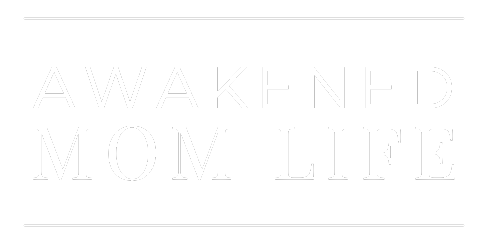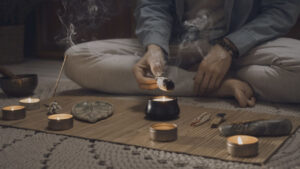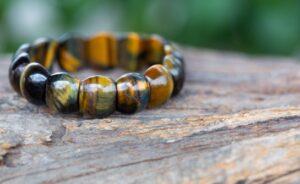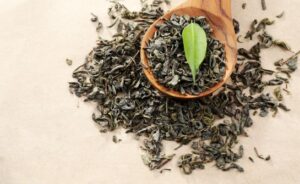It’s funny how healing and growth work at times. I’ll be honest: there are times in my healing journey when I feel like, “Okay, I’ve finally got to the point where I can’t hurt that bad ever again.” And then it happens; something feels like a throat punch out of nowhere.
It happened this weekend very unexpectedly.
Or, in hindsight, maybe I was in a place of such surrender (which is a good thing) that I felt at ease going with the flow, and when I was triggered, it honestly felt that much more painful.
I went to orientation this weekend (I’m working on my Master’s degree) and met some of my school colleagues. Some I knew from our online classes together, and some were new.
In the past, I struggled with severe anxiety to the point that it was nearly phobic, but I’ve healed a lot. Nowadays, I still experience some social anxiety, particularly when meeting new groups of people. It’s one of the few situations where I still feel anxious.
However, it’s usually short-lived, and after about 15 minutes, I start feeling regulated. I’m familiar with the routine, and I’m still working on resolving it and letting go of whatever is causing the pattern.
To get to orientation, we decided to drive all the way to Kansas from Ohio—an eleven-hour trip. My husband took vacation time, and we made a family trip of it. Since I still need to use my wheelchair periodically (I have FND), it’s easier to drive than fly. And I don’t trust airlines; did you know that power-assist wheelchairs are costly and customized?! We’re talking upwards of $10,000, and airlines are notorious for damaging mobility aids.
Anyway, we made it to Kansas after breaking up the drive over seven days earlier, and I was already exhausted. This should have been my first clue that it would be a difficult weekend. But, I did my best to rest up before joining the group on campus.
We only met for a couple of hours on the first night because everyone was just getting into town. I was the only person not staying on campus because the on-site housing was not the most accessible. (This is an important detail for later)
Keep in mind that my Master’s degree is in Neuroscience and Trauma, meaning many of us are drawn to this program because we know what it’s like to live with trauma. And when you are studying trauma, and you have trauma, you are at risk of being triggered.
So, of course, there’s an ice-breaker activity planned… and it included getting up and walking around to talk to people. Can you see where this is going?
First, the room we are in for the orientation is just big enough for the people, tables, and chairs. It was far too small for me to navigate in my wheelchair. Second, I have a history of social anxiety, which is now amplified because I can’t actually participate like I’m supposed to. I did manage to maintain my composure and do my best to engage with others while sitting in the corner of the room.
Then, it was time to be dismissed at the end of the day’s session, and everyone left to return to their shared rooms, leaving me behind and not even acknowledging me. It’s not the first time this has happened (being left behind physically). But, every time, it feels like a dagger to my heart. It’s so easy for able-bodied people to simply get up and walk away, and they aren’t used to slowing down to make sure everyone else gets out okay. I get it, but it doesn’t make the pain any less.
Two women finally realized I needed help, and they stayed by my side most of the weekend, offering to help when they could. Honestly, without the two of them, I don’t know what I would have done.
So, the first night, as we drove back to the hotel, I just cried.
I didn’t get to make friends by sharing a room with someone…
I didn’t get to actually talk and meet new people during the planned activity…
I was left alone while everyone else buddied up to walk back to the rooms…
All because I’m in a wheelchair. (And I’m in a wheelchair because of trauma. Want to talk about traumatizing and ironic????)
As the weekend progressed, I felt myself becoming increasingly dysregulated. I felt more isolated with each group activity because every activity required the ability to move around and engage.
So, the only people I really got to engage with were those who helped me and tried to come to me. Which amplified the pain. Only a handful of people were willing to go out of their way to engage and connect with me.
I have always been the kind of person who reaches out to others. I try to connect with those sitting alone in the corner because I know how it feels. However, I felt a lot of pain this weekend because it seems like I am always putting all the effort into relationships. It’s draining, and I have often felt taken advantage of.
It hurt so deeply that out of about twenty fellow students, only about four made a true effort to connect with me. Four people.
All the wounds of childhood trauma resurfaced: fear, loneliness, unworthiness, and feeling unloved and unwanted.
I’m well aware that everyone has their own trauma and pain. This story kept playing in the back of my mind, “They have trauma, too, and I am not allowed to feel upset because they are going through their own struggles. They aren’t ignoring me to hurt me. They are ignoring me because they have anxiety or are busy.” I still struggle at times to feel like I’m allowed to feel hurt and sad.
To be completely honest, this weekend was one of the worst experiences of my life. Yes… of my life.
And that speaks volumes. I’ve been through a lot.
It all felt strange because, as I mentioned earlier, I believed “nothing could hurt me as much as I’ve been hurt in the past.” I have become so resilient and feel so much more prepared to handle difficult situations that I didn’t expect to be able to be knocked down. But I was.
It’s been a long time since I have felt that isolated and unwanted.
I wound up having a non-epileptic seizure on day 2. Yes, full-on, passing out, can’t move, can’t talk… It’s been at least 6 months since my last episode, and it only happens in the most severe situations. Fortunately, I wasn’t alone. And one new friend, who had supported me throughout the day, was there. I don’t know what I would have done if I had been alone…
I spent twenty years in the corporate world, pushing myself to blend in.
I couldn’t blend in here; I couldn’t pretend to be normal and participate.
I was at the mercy of those around me. Yes, I asked for help, but it was still hard. I spoke up for myself but still felt ignored. I didn’t want special attention; I just wanted to feel like people cared. I wanted to be treated how I would treat others. I wanted to experience the weekend and get to know people.
At the end of the second day, I was mentally and emotionally drained. I decided to ask my husband to come to get me after the last session of the day. I decided I wouldn’t be sticking around for dinner or communal time. My heart simply couldn’t handle trying to force my way into feeling like I belonged.
But then, when I didn’t think it could get any worse, it did.
The last session of the day was on neuropsychology.
Let me preface by saying I have a massive trigger when it comes to medical professionals being dismissive and gaslighting. I nearly died because medical professionals were deadset on their methods and ideas, even though they weren’t helping me.
So, during the last session, the guest teacher says, “You can control your thoughts, but you can’t control your emotions.” In essence, this implies that you can rewire your brain for happiness by thinking more positively. I was livid.
This narrative nearly killed me, and I do not say that lightly.
This narrative took my physical health from me.
This f*cking narrative put me in the f*cking wheelchair in which I sat in this room surrounded by people where I felt alone and unwanted.
This narrative is everything that I am working to break down in the medical world. It’s oversimplified and keeps far too many trauma survivors stuck and suffering.
Fortunately, my classmate beside me asked for clarification on the statement (which I wanted to ask but was far too angry and triggered to get out). She asked him to expand on the mind-body influence in healing, which challenges the assertion that using the thinking brain is the most effective way to heal trauma. Both professors doubled down on the concept, reiterating how powerful thinking is in neuroplasticity.
So why does this make me furious?
First, I do believe that positive thinking can be powerful in neuroplasticity. I absolutely do not question that. It helped me immensely. However, this perspective is superficial and overlooks the massive challenges faced by trauma survivors. It reinforces the problem with trauma care in modern medicine. Many of us have diminished capacities in the prefrontal cortex—the area NEEDED for generating positive thoughts!
The narrative fails to acknowledge that trauma can physically alter our brains, enlarging the amygdala and shrinking the hippocampus. This neurological impact makes it incredibly challenging to form rational thought patterns and cultivate positive thinking. It’s a glaring oversight that undermines the complexities of trauma recovery and perpetuates harmful misconceptions about healing processes.
So when a doctor says, “Think more happy thoughts,” and you continue to struggle with this, as a trauma survivor, you feel like you are failing. I did. You believe it’s your fault because the doctor told you, “You can control your thoughts.” It keeps trauma survivors trapped in the cycle of self-blame and often perpetuates negative neuroplasticity.
Learn more about why you can’t think your way out of trauma.
Learn more about how trauma changes your brain.
Learn more about how trauma changes your body.
Learn more about why a mind-body approach is crucial to trauma healing.
So, after listening to both teachers double down on the concept of “think happy and heal” (my words, yes, I’m oversimplifying), instead of waiting for the session to be over, I was done; I was angry, I was triggered and dysregulated to the max. I threw (yes, threw) my things into my lap, angrily wheeled myself right out, and jetted for the hallway—tears welling in my eyes. I didn’t care if I interrupted the session, even as I had to ask people to move out of my way to fit through the tight space. I was done.
During the two days on campus, it felt like every trauma wound I ever had was ripped open and salt rubbed in.
I’ve worked so hard to heal. I couldn’t understand why this was happening…
I want to make a difference in the world and prevent what happened to me from happening to others. I fully believe that 99% of my health issues were absolutely preventable. Yet, I sat there those two days, in a room among people I thought wanted the same… I thought we all aspired to create spaces where everyone feels a sense of belonging, is deemed worthy of support and understanding, and can heal without judgment or oversimplification.
As I left, it hit me…
Even with trauma as a shared underlying experience, we’re still very different. We each have a different lens through which we see trauma healing.
I have been through an extreme level of trauma and healing that most people will never experience. Combined with the fact that I had to learn how to save my own f*cking life because doctors were failing me… it seems unlikely that I will ever meet someone who can truly relate to my experiences. I’ve become a library of knowledge because of research and lived experience. Most other people have one or the other, not both.
I have spent the last two days reflecting and in deep emotional pain. Struggling between disassociation and exhaustion. Now, as clarity and regulation are coming through, I’m realizing…
In the middle of the pain, it felt like the pain wouldn’t stop.
I was still fighting the pain, like I had always done.
I was judging it. Judging myself.
Today, I went outside, lay in the grass, and stared into the sky. I watched the birds and felt the breeze on my skin, and I was reminded of my truth.
We are all spiritual beings living a human existence.
Being human is messy, complex, and painful… and pain helps us to grow and learn. Without pain, I wouldn’t be the person I am today. While this weekend was very difficult, I will find gratitude in the lessons.
Pain causes constriction… yet, in that constriction lies healing.
And on the other side of constriction is expansion.
Each time we constrict and then heal, we expand larger and larger—and that’s how we heal from trauma and begin to thrive.
A few things I’m already realizing…
I’ve always been so worried about people liking me and trying to fit in; I’ve never asked myself… do I like people? Do I actually want to fit in here? Honestly, I’m realizing…. I’m becoming incredibly selective about who I want in my life. I value authenticity, honesty, integrity, compassion, curiosity, and intellect. And it’s completely okay to want to be surrounded by those kinds of people. And it’s okay to not want to be around people who make me feel uncomfortable and unwelcome. (This is a new aha for me; maybe it seems obvious to others, but this is how trauma works. Sometimes, we don’t even realize the default narratives that drive our behavior)
In the end, I’m already starting to feel like myself again: regulated, happy, balanced, and grateful.
I wanted to share this experience as a reminder for myself and others that pain will come up. It’s part of the human experience, and instead of fighting it, if we can surrender, we’ll find the lessons, and we can grow from it instead of letting it become trapped and keep us in a place of resentment and frustration.
Feel the emotions. Process it. And let it go.
XOXO, Kristina














